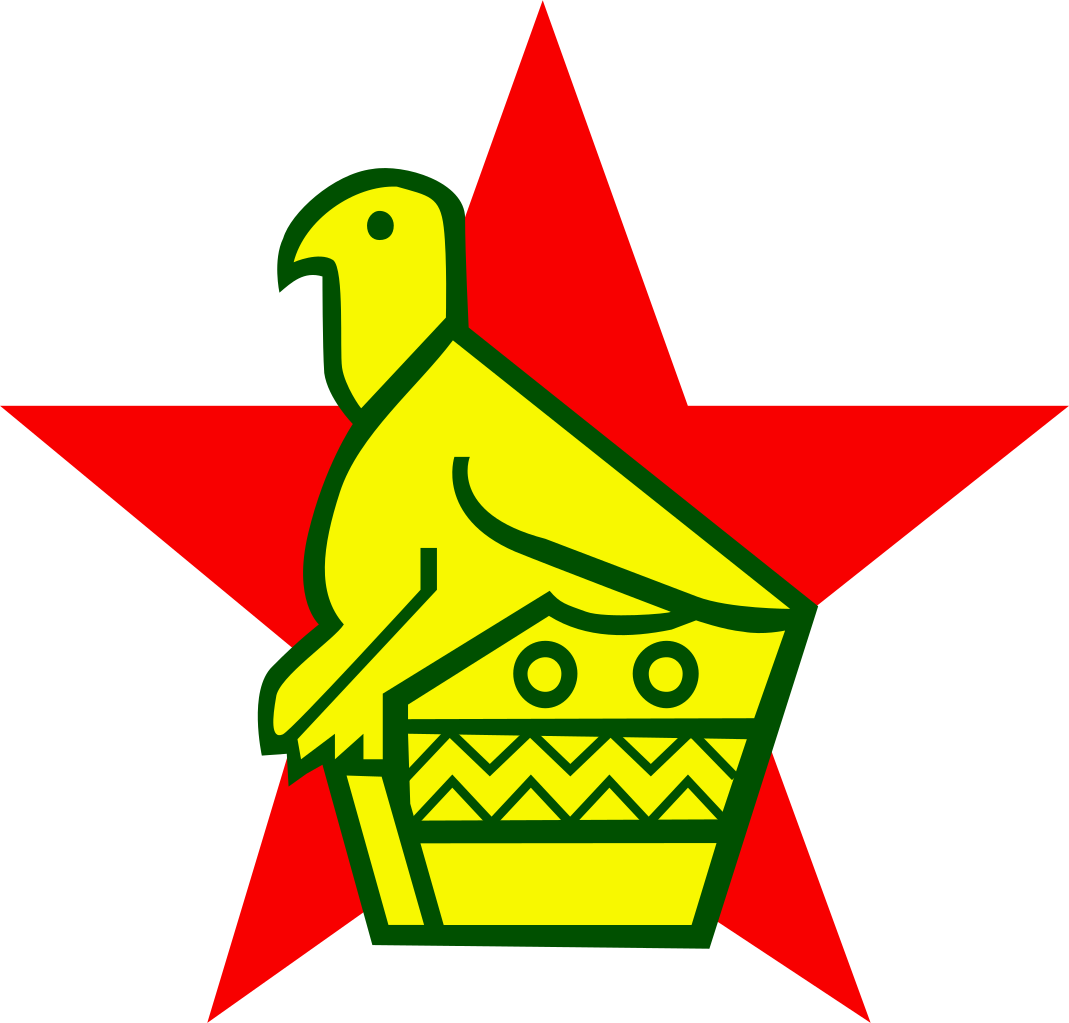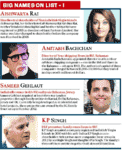So what are your opinions is Army controlled country more dangerous or corrupt politicians controlled?Former PM Nawaz Sharif was disqualified from parliament by the Supreme Court due to failing to declare assets and being untruthful, which violates the Constitution. He was subsequently removed as head of his own party, which is named after him (Pakistan Muslim League - Nawaz). To reinstate him as head of the party, the PMLN pushed a law called Elections Act 2017 through parliament, which allowed people disqualified from parliament to head political parties. However, among various other amendments pertaining to the regulation of elections, the Act also changed the oath parliamentarians have to take. In that oath, those elected to parliament have to declare their complete belief in the fact that Prophet Muhammad (PBUH) is the last prophet. However, the amended oath could be interpreted in such a way that a parliamentarian could believe in someone else as the final prophet. The government called it a "clerical error" , and immediately amended it back to the previous form. That, in my opinion, should've been the end of it. But some fringe religious parties (no one ever heard of them before this controversy) claimed that the amendment of the oath was a conspiracy, and occupied the Faizabad Interchange, which connects Islamabad to Rawalpindi, and is a very busy area. The Metro Bus service, used by 100'000 people daily, was also heavily disrupted. They demanded the resignation of the Law Minister Zahid Hamid, who basically oversees all of the government's legislation. The government obviously refused, but formed a commitee to probe the matter. But the protesters weren't satisfied, and continued the sit-in. Then the Islamabad High Court intervened, and ordered the protesters to be relocated to a ground reserved for protests and rallies, as they were heavily disrupting everyday life. The government didn't want to forcibly remove them, as they were afraid of losing popularity and votes to religious parties, but the High Court issued another order to remove the protesters, and threatened to start contempt of court proceedings against the Interior Minister if he didn't comply. This forced his hand to order an operation to disband the sit-in. Social media and news channels were blocked to try to prevent coverage of the operation and loss of popularity. The operation, however, was botched, as it brought more and more people to the streets, in Lahore and Karachi too. The goverment ordered the deployment of the Army, who, however, encouraged them to find a peaceful solution. The Army apparently negotiated with the leaders of the protest, and convinced the government to accept their demands, which led to the resignation/sacking of the Law Minister, and the end of the protests.
If you ask me my opinion, the Army was behind the protesters all the time, as it is not fond of PMLN at all, having toppled their government in 1999 already, and having had some serious disagreements with them on the subject of fighting terrorism. Their role in ending the protest has made them even more popular, and has undermined the government. The Islamabad High Court's approach worked in the Army's favour, despite being a good one.
When the Army refused to step in, i seriously thought that they were gonna overthrow the government.
You are using an out of date browser. It may not display this or other websites correctly.
Random Thoughts
- Thread starter MattW
- Start date
CerealKiller
Staff Member
Moderator
Fantasy Cricket Team
PAK...
Kings XI
Islamabad
PlanetCricket Award Winner
Avengers
Well, the economy has always boomed when the Army was in power. And relations with India and US almost always seem to be good . But Zia-ul-Haq also introduced his hardline Islamist policies, which transformed Pakistan from a relatively moderate country to a Saudi Arabia-wannabe (thankfully the civilian governments since then have reversed some of his laws, but a big part of them is still there). And Musharraf failed to control the law and order situation. The day all this power is removed from them, Pakistan will be, as a country, ten times better.So what are your opinions is Army controlled country more dangerous or corrupt politicians controlled?
- Joined
- Mar 21, 2011
- Location
- West Midlands, UK
- Online Cricket Games Owned
- Don Bradman Cricket 14 - Steam PC
Well, the economy has always boomed when the Army was in power. And relations with India and US almost always seem to be good . But Zia-ul-Haq also introduced his hardline Islamist policies, which transformed Pakistan from a relatively moderate country to a Saudi Arabia-wannabe (thankfully the civilian governments since then have reversed some of his laws, but a big part of them is still there). And Musharraf failed to control the law and order situation. The day all this power is removed from them, Pakistan will be, as a country, ten times better.
Completely agreed. Any economy that centres on religious fronts will not succeed into the future. Using approaches that were conceived in middle east approx 1000 years ago will not be any use in the modern era. One of the saddest things that I read several years back was that in 1960 Pakistan was predicted to become one of the global hubs (similar to London, New York) of Asia, however political instability and religious bearings have really led the country astray.
Well, the economy has always boomed when the Army was in power. And relations with India and US almost always seem to be good . But Zia-ul-Haq also introduced his hardline Islamist policies, which transformed Pakistan from a relatively moderate country to a Saudi Arabia-wannabe (thankfully the civilian governments since then have reversed some of his laws, but a big part of them is still there). And Musharraf failed to control the law and order situation. The day all this power is removed from them, Pakistan will be, as a country, ten times better.
Completely agreed. Any economy that centres on religious fronts will not succeed into the future. Using approaches that were conceived in middle east approx 1000 years ago will not be any use in the modern era. One of the saddest things that I read several years back was that in 1960 Pakistan was predicted to become one of the global hubs (similar to London, New York) of Asia, however political instability and religious bearings have really led the country astray.
I just read somewhere in news that Mushraf said its ok to use terrorism in the form of LeT in Kashmir and Hafeez Saeed should be freed. Now I know there is a lot of history behind Kashmir should be part of which country but using terrorism to prove your point itself shows his Mentality. Terrorism has not only harmed India but it has harmed Pakistan too. That school attack was the most disgusting thing.
CerealKiller
Staff Member
Moderator
Fantasy Cricket Team
PAK...
Kings XI
Islamabad
PlanetCricket Award Winner
Avengers
Musharraf is done. He just wants to stay relevant. The moment he steps foot in Pakistan, he'll be arrested.I just read somewhere in news that Mushraf said its ok to use terrorism in the form of LeT in Kashmir and Hafeez Saeed should be freed. Now I know there is a lot of history behind Kashmir should be part of which country but using terrorism to prove your point itself shows his Mentality. Terrorism has not only harmed India but it has harmed Pakistan too. That school attack was the most disgusting thing.
CerealKiller
Staff Member
Moderator
Fantasy Cricket Team
PAK...
Kings XI
Islamabad
PlanetCricket Award Winner
Avengers
The blame for the terrorism problem rests almost entirely on the Army and the ISI. Thry have their interests in keeping the terrorists, so they can hunt some of them down after an attack and win popularity at the expense of the civilian government. The only way to eliminate this problem would be through a constitutional amendment that makes the PM the commander-in-chief of all police, military and intelligence forces.I just read somewhere in news that Mushraf said its ok to use terrorism in the form of LeT in Kashmir and Hafeez Saeed should be freed. Now I know there is a lot of history behind Kashmir should be part of which country but using terrorism to prove your point itself shows his Mentality. Terrorism has not only harmed India but it has harmed Pakistan too. That school attack was the most disgusting thing.
He should be done, I am even surprised that how our countries India and Pakistan both have no extradition treaty with other countries. People like Hafeez Saaed, Dawood Ibrahim, Vijay Malya. Lalit Modi who face criminal charges should be bought to India under any circumstances and its similar for Pakistan where Musharraf should be in Pakistan facing the similar criminal charges treatment. For our countries to get better we really need to up the anti in this field. Be strict or else there will always be Ibrahim's and Mallya'sMusharraf is done. He just wants to stay relevant. The moment he steps foot in Pakistan, he'll be arrested.
- Joined
- Mar 21, 2011
- Location
- West Midlands, UK
- Online Cricket Games Owned
- Don Bradman Cricket 14 - Steam PC
He should be done, I am even surprised that how our countries India and Pakistan both have no extradition treaty with other countries. People like Hafeez Saaed, Dawood Ibrahim, Vijay Malya. Lalit Modi who face criminal charges should be bought to India under any circumstances and its similar for Pakistan where Musharraf should be in Pakistan facing the similar criminal charges treatment. For our countries to get better we really need to up the anti in this field. Be strict or else there will always be Ibrahim's and Mallya's
The ability to get away with so much allows these people to continue. I mean both Pakistan and India are crammed full of them. With people like Nawaz Sharif and more importantly, Zardari getting away because of contacts and money not only is a damaging sign, it's also an incentive for future individuals to partake in criminal or illegal activities.
I mean the lack of accountability for the Benazir Bhutto's murder just proves that money can hide anything within the southern hemisphere.
Atleast Nawaz Sharif was removed from the post, here the panama paper leak included Amitabh Bachan, Aishwarya Rai and so many others. Nothing done not even the topic discussed.The ability to get away with so much allows these people to continue. I mean both Pakistan and India are crammed full of them. With people like Nawaz Sharif and more importantly, Zardari getting away because of contacts and money not only is a damaging sign, it's also an incentive for future individuals to partake in criminal or illegal activities.
I mean the lack of accountability for the Benazir Bhutto's murder just proofs that money can hide anything within the southern hemisphere.
- Joined
- Mar 21, 2011
- Location
- West Midlands, UK
- Online Cricket Games Owned
- Don Bradman Cricket 14 - Steam PC
Atleast Nawaz Sharif was removed from the post, here the panama paper leak included Amitabh Bachan, Aishwarya Rai and so many others. Nothing done not even the topic discussed.
Removed but not acquited with any real damage (i.e. jail time - I don't believe a fine will be sufficient because of his net worth). I didn't know about the Bachan family also being involved in it, but I guess the ridiculous level of fame of Bachan household will always work in their favour.
CerealKiller
Staff Member
Moderator
Fantasy Cricket Team
PAK...
Kings XI
Islamabad
PlanetCricket Award Winner
Avengers
He is being tried by the National Accountability Bureau though. And the Supreme Court is hearing the Hudaibya Mills case too. If those cases are succesful, he will hopefully die in jail.Removed but not acquited with any real damage (i.e. jail time - I don't believe a fine will be sufficient because of his net worth). I didn't know about the Bachan family also being involved in it, but I guess the ridiculous level of fame of Bachan household will always work in their favour.
- Joined
- Mar 21, 2011
- Location
- West Midlands, UK
- Online Cricket Games Owned
- Don Bradman Cricket 14 - Steam PC
He is being tried by the National Accountability Bureau though. And the Supreme Court is hearing the Hudaibya Mills case too. If those cases are succesful, he will hopefully die in jail.
Let's hope he gets a jail sentence, but knowing his political strength and connections he is most likely to not get jail time. Worse, if he does he will most likely move to a different country - bearing in mind that he owns homes in Mayfair, London.
Alright Random Thoughts thread have turned into Politics :P
After a long time I've seen political discussion in this forum...
After a long time I've seen political discussion in this forum...
- Joined
- Mar 21, 2011
- Location
- West Midlands, UK
- Online Cricket Games Owned
- Don Bradman Cricket 14 - Steam PC
Alright Random Thoughts thread have turned into Politics :P
After a long time I've seen political discussion in this forum...
There used to be a political discussions area on the forum but I guess it was abolished after lack of activity.
Similar threads
- Replies
- 256
- Views
- 21K
- Replies
- 3
- Views
- 2K
Users who are viewing this thread
Total: 9 (members: 0, guests: 9)









